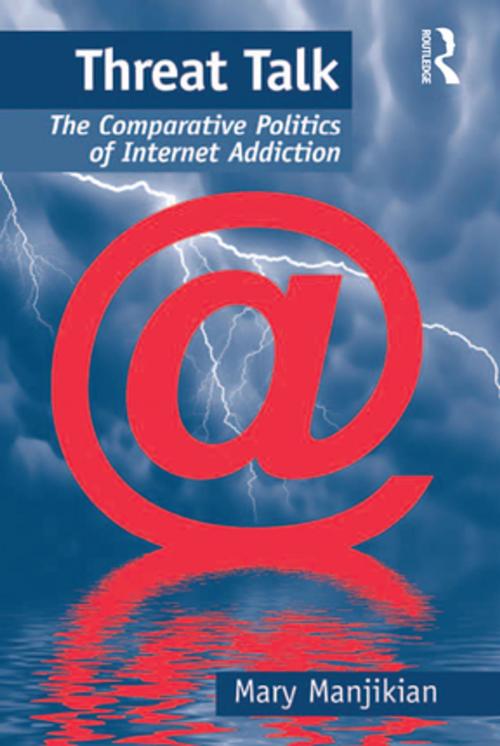Threat Talk
The Comparative Politics of Internet Addiction
Nonfiction, Social & Cultural Studies, Social Science| Author: | Mary Manjikian | ISBN: | 9781317010265 |
| Publisher: | Taylor and Francis | Publication: | February 24, 2016 |
| Imprint: | Routledge | Language: | English |
| Author: | Mary Manjikian |
| ISBN: | 9781317010265 |
| Publisher: | Taylor and Francis |
| Publication: | February 24, 2016 |
| Imprint: | Routledge |
| Language: | English |
'Threat Talk' exposes how US and Chinese scientists and policy-makers have understood and responded to the problem of internet addiction in their societies. Is the internet good or bad for society? American analysts like Lessig and Zittrain suggest that the internet is inherently liberating and positive for society, while Morozov and Sageman warn that the internet poses risks to citizens and societies. Using a comparative framework to illustrate how the two states differ in their assessments of the risks to citizens posed by the introduction of new technology, Mary Manjikian compellingly argues that both 'risk' and 'disease' are ideas which are understood differently at different historic periods and in different cultures. Her culturalist approach claims that the internet is neither inherently helpful, nor inherently threatening. Rather, its role and the dangers it poses may be understood differently by different societies. Is the internet good or bad for society? The answer, it appears, is 'it depends'.
'Threat Talk' exposes how US and Chinese scientists and policy-makers have understood and responded to the problem of internet addiction in their societies. Is the internet good or bad for society? American analysts like Lessig and Zittrain suggest that the internet is inherently liberating and positive for society, while Morozov and Sageman warn that the internet poses risks to citizens and societies. Using a comparative framework to illustrate how the two states differ in their assessments of the risks to citizens posed by the introduction of new technology, Mary Manjikian compellingly argues that both 'risk' and 'disease' are ideas which are understood differently at different historic periods and in different cultures. Her culturalist approach claims that the internet is neither inherently helpful, nor inherently threatening. Rather, its role and the dangers it poses may be understood differently by different societies. Is the internet good or bad for society? The answer, it appears, is 'it depends'.















